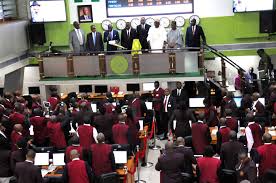Why Does It Matter To Demutualise The Stock Exchange?


Demutualisation is the process of converting a non-profit, mutually-owned organisation to a profit making, investor-owned company. Traditionally, stock exchanges operate as mutually owned entities whose members (broker-dealers with “seats” on the exchange) are also its owners, with all the voting rights conferred by ownership. Essentially, what demutualisation does is to separate ownership from the right of access to trading on an exchange. A demutualised exchange is, therefore, a limited liability company owned by shareholders who provide capital and share in profits or losses. Although a demutualised exchange will continue to provide virtually the same services, it will have a different governance structure in which outside shareholders will have the opportunity of representation on the Board of Directors.
A demutualised stock exchange may take different organisational forms: some Exchanges have demutualized and become public companies listed on their own Exchanges such as the Australian Stock Exchange; other Exchanges have demutualized but remained private corporations like the Amsterdam Exchange and the Toronto Stock Exchange. Since the first demutualization by the Stockholm Stock Exchange in 1993, a number of stock exchanges especially in emerging market jurisdictions have either demutualized or are in the process of demutualizing. These include those of Malaysia and India. In Africa, the Johannesburg Securities Exchange (JSE) was the first to demutualize having done so in July 2005. According to data from the World Federation of Exchanges, more than 70 per cent of members has transformed their legal structure from non-profit mutual Exchanges into demutualised organisations.
The Nigerian Stock Exchange (NSE) was incorporated as a private company in September 1960 under the name of Lagos Stock Exchange which was changed to the Nigerian Stock Exchange in December 1977. It was re-incorporated as a company limited by guarantee in December 1990 and has operated as such ever since. In recognition of the potentials of demutualization in the development of the capital market, the NSE appears set to join the growing list of demutualized Exchanges. Already, members of the NSE at its Extra-ordinary General Meeting (EGM) held on March 30 2017, approved the demutualisation scheme of the Exchange. In addition, a Bill to that effect titled ‘Demutualization of the Nigerian Stock Exchange, Bill, 2017,’ sponsored by Mr Ayo Tajudeen who chairs the House Committee on Capital Markets, has passed second reading in the House of Representatives.
The demutualization of the NSE which is now on a fast lane is welcome news to many stakeholders because it is hoped that it will put the NSE in the league of demutualized Exchanges and thereby enhance its competitiveness as well as improve market liquidity which is critical for the development of the capital market in Nigeria. A competitive stock Exchange will be more efficient in running its business since the management of the Exchange will have a duty to maximise shareholders’ value.
Also, demutualization will put the NSE in a better position to raise a large pool of capital to finance modernization plans and new technology to compete in today’s global marketplace. It will spur innovation which will eventually lead to more product offerings. It will equally change the way the exchange is governed to provide for faster decision making capability. Furthermore, successful demutualisation of the NSE will make for greater investor participation in the capital market. It is important in today’s competitive environment that the NSE become responsive to the needs of its many stakeholders namely stockbrokers, shareholders, listed companies, institutional and retail investors. A demutualised NSE will afford both institutional and retail investors the opportunity to become shareholders. Moreover, demutualisation will help the NSE to attract more listings. Improved corporate governance and the level of efficiency associated with a demutualised exchange are bound to increase the confidence of other companies and this would result in greater listings. Once demutualised, the NSE will have greater opportunities for international alliances and such alliances provide openings for investments and cross border listings.
One vital feature that is expected to accompany the NSE demutualisation is greater flexibility in decision-making. The exchange is better equipped to make timely decisions for market users and to respond to changing circumstances. Financial decision-making is optimised through the allocation of resources to business initiatives that increase the shareholders’ value. Indeed, studies have shown that demutualised exchanges exhibit higher levels of profitability and operating efficiency than mutually-owned exchanges. Thus, the NSE demutualisation is expected to bring about better performance of the exchange.
On the flip side, although demutualisation has many benefits, it is not without some risks considering that ownership and trading rights are separated. In fact, it can be argued that the very motivation earn profit intensifies conflict of interest. Stock exchanges usually act as a self-regulator and their regulatory functions cover the areas of trading, market manipulation and members’ activities. A company aiming to maximise profits and dividends for its shareholders may have less incentive to commit resources for self-regulation or to take enforcement action against its customers who are a source of income. So, there is always the possibility that regulatory functions may be sacrificed on the altar of profit maximisation. In order to address these challenges, demutualised exchanges are encouraged to evolve strong governance structures to minimise the associated conflicts.
That said, demutualising the NSE holds a lot of promise for the Nigerian capital market. In the words of its Chief Executive Officer, Mr Oscar Onyema, it “will generate substantial motivation for the development of an agile exchange thereby consolidating its innovativeness and strengthening its leadership both at local and international levels, whilst also adding value to its stakeholders”. Indeed, the promise of the NSE demutualisation is summarised in the Demutualisation of the Nigerian Stock Exchange Bill 2017, currently before the National Assembly which declares that: “In line with the Capital Market Master Plan, the proposed demutualisation of the Nigerian Stock Exchange aims at amongst others, promoting efficiency in the creation and harnessing of capital; as well as creating liquidity in the market and adopting and strengthening corporate governance best practices. It is anticipated that the demutualisation of the Nigerian Stock Exchange will reinforce the continuous growth and development of a dynamic, fair, transparent and efficient capital market and thus significantly contribute to Nigeria’s economic development”. This is precisely why it matters.
Source: Punch








